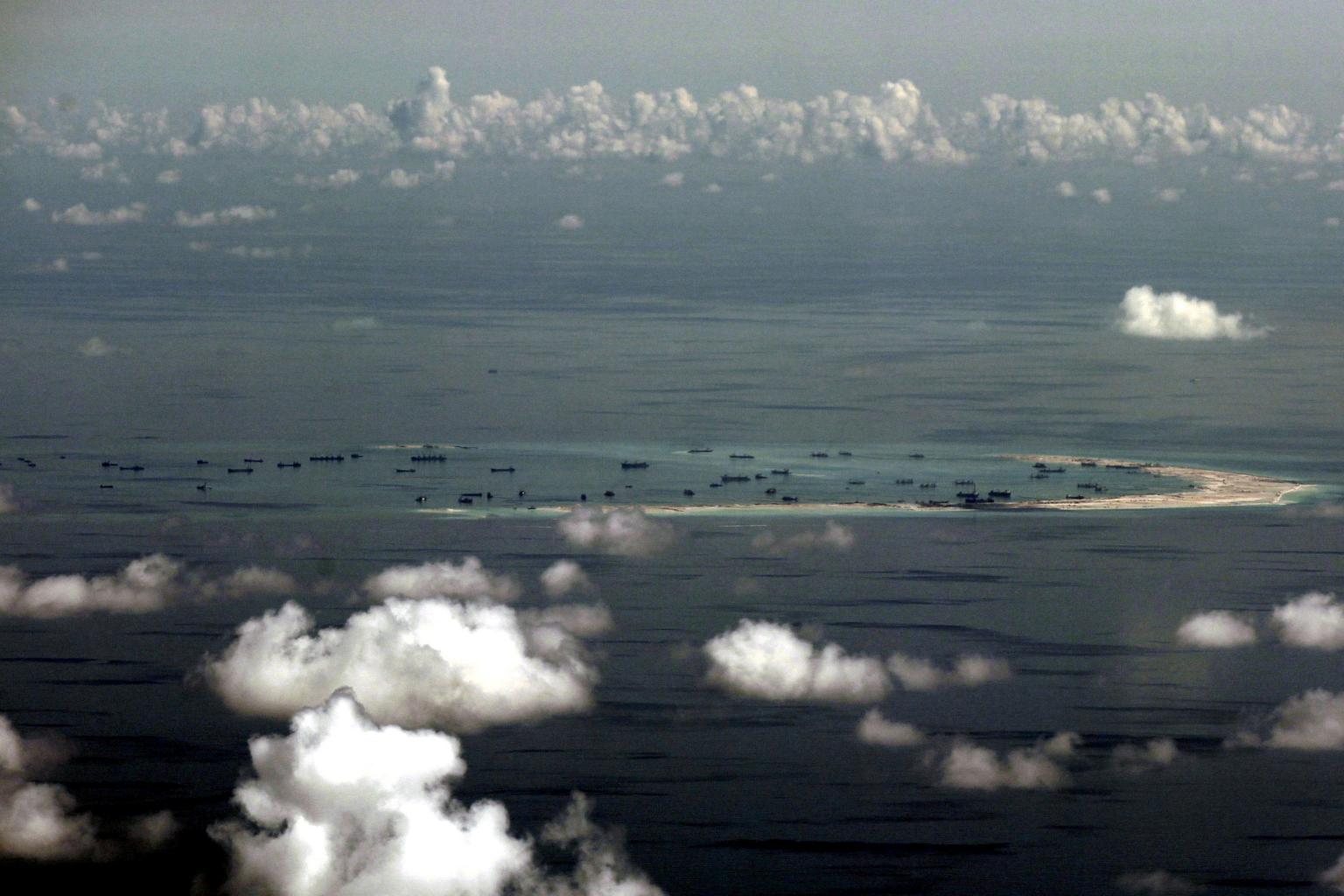China causing $880m in annual damage to reefs in disputed waters, experts say
Sign up now: Get insights on Asia's fast-moving developments

China has carved seven artificial islands out of reefs in the Spratlys. It has built runways and radar, and deployed missiles, artillery and other weapons systems on these islands.
PHOTO: REUTERS
MANILA - China's massive fishing fleet and land reclamation activities in the South China Sea are causing at least 33 billion pesos (S$880 million) worth of damage each year to the Philippines' reef ecosystem, experts said on Wednesday (July 3).
"The value includes all services we get from coral reefs, like climate regulation, and the benefits we get from the ecosystem," said Dr Deo Florence Onda, a scientist with the University of the Philippines' Marine Science Institute.
He added that the estimate, while staggering, is still "conservative".
Dr Onda and 73 other marine biologists and experts went on a two-week expedition to the South China Sea in April to check the marine ecosystem in waters the Philippines considers part of its "exclusive economic zone".
Dr Onda said his team used the baseline value of US$353,429 (S$479,016) per ha per year for damaged coral reefs formulated by a Dutch information firm.
Satellite images show at least 1,850 ha of damaged reefs around the Philippine-held Thitu island and elsewhere in the Spratly archipelago in the southern half of the South China Sea.
Maritime law expert Jay Batongbacal said the current estimate does not yet include areas not visible to satellites.
He said that while the Chinese are not the only poachers lurking in Philippine waters, China's mass harvesting of giant clams and corals and a massive island-building programme in the Spratlys caused the most harm.
China has carved seven artificial islands out of reefs in the Spratlys. It has built runways and radar and deployed missiles, artillery and other weapons systems on these islands.
It has had to dredge huge amounts of sand and coral reefs to add 1,300 ha to the islands.
China has long claimed virtually the entire South China Sea, one of the world's busiest, with the Philippines, Vietnam, Malaysia, Taiwan and Brunei also contesting ownership of parts of it.
"We aren't joking when we say that if we do not stop Chinese fishers from our seas, they will likely drain all our marine resources in just a few years," said Professor Batongbacal.
"In Scarborough Shoal, they even destroy the reefs themselves. If this continues, the shoal would be completely wiped out in five years."
The government's policy over fishing in Philippine waters has become ambiguous as Philippine President Rodrigo Duterte tries to curry favour from China to buttress his economic and political agenda.
His spokesman Salvador Panelo reiterated in a news briefing on Wednesday (July 3) that Mr Duterte and China's leader Xi Jinping had a "verbal agreement" to allow China's fishing fleet to venture into Philippine waters.
On the same day, in a television interview, Foreign Affairs Secretary Teodoro Locsin said he was not aware of this "agreement".
Even if it was true, he said this deal could not be enforced because it had not been set on paper.
Debates over the Philippines' rights to disputed waters in the South China Sea have been simmering since a Chinese trawler sank and then abandoned the crew of a Philippine fishing boat last month.
The incident stoked nationalist sentiment as Mr Duterte and his top aides sought to play down the incident as a "little maritime incident".
Mr Duterte was criticised for his tepid response and his soft stance when it comes to asserting the Philippines' rights over its "exclusive economic zone".


